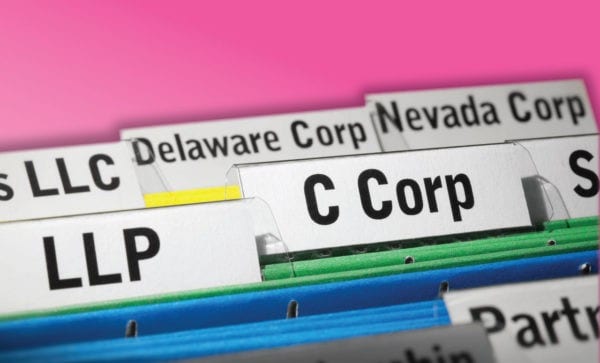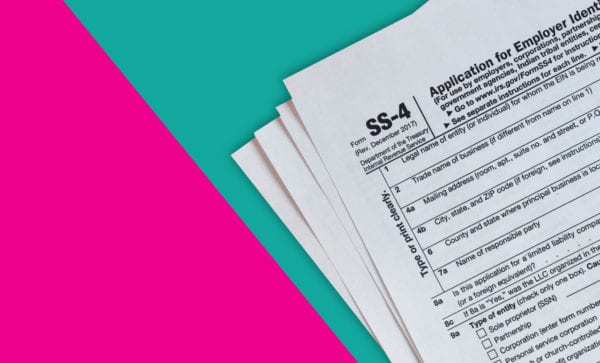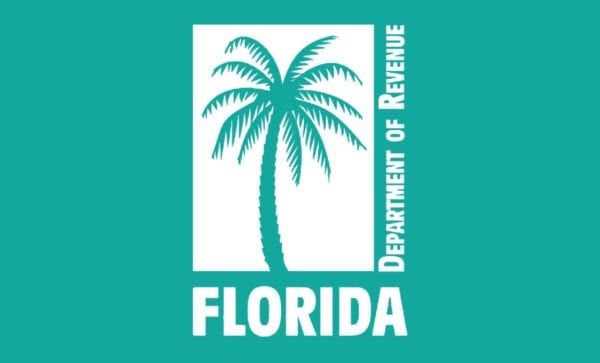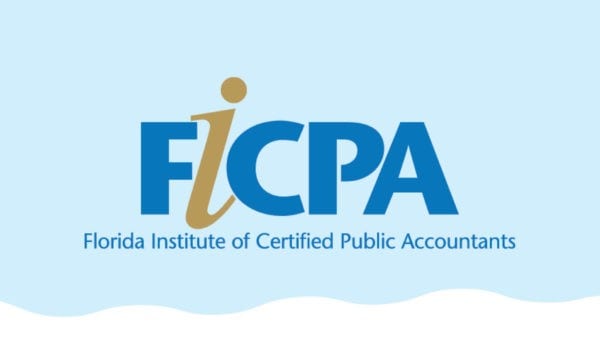So you decided to make your dreams a reality by starting your own business in Florida. This time in your life is extremely exciting, envisioning all of the wonderful years ahead building and growing your business. You can also see how challenging it will be to get your business off the ground and keep it running smoothly. But by taking your first steps, you can start off on the right foot.
But first things first. You have decided to incorporate your business as an LLC, limited liability company. Setting up your business as an LLC is a great idea thanks to advantages like limiting personal liability, requiring less paperwork, and simplifying the business’ structure. And opening your business in Florida also brings with it a very tax-friendly business environment.
You will want to make sure that you properly cross your t’s and dot your i’s when filling out the LLC paperwork. Mistakes during the process can cause delays and become a nuisance to getting your business up and running. If the idea of filling out paperwork stresses you out or you want it done quickly and efficiently, consider using a service like ZenBusiness. ZenBusiness can do all of the legal work required to file your business as an LLC with the state of Florida so you can stay focused on the things you truly care about — your clients and your business.
1. Verify That a Florida LLC Is the Right Entity

If you are starting a business, you will first want to make sure that an LLC is the right designation for your business. If you are starting a small business, it’s more than likely that classifying it as an LLC is the right choice.
One of the major advantages to an LLC is that it protects your personal assets. It separates your personal assets from your business’ assets in the event of a lawsuit or if the business has any outstanding debts. Your home, possessions, and money can’t be taken from you due to any issue with the company. If you are in business with partners, you are also protected in the event any financial problems surface for them.
An LLC also offers a huge tax advantage via pass-through taxation. Profits from the company are included as income on your personal tax returns rather than requiring you to pay any corporate taxes. Expenses can also be passed through to your personal tax returns.
If you are still unsure of how to classify your business, you can find more information about business structures from the U.S. Small Business Administration.
2. Create a Business Plan for Your LLC

Now that you have decided you do indeed want to know how to start an LLC in Florida, you will want to develop a business plan. You might be wondering what exactly a business plan is and why you would need one.
A business plan is simply an explanation of how your business will operate and what it will do to succeed. It could be a very simple explanation or a very long and detailed breakdown of your business operations. Your business plan should be useful, so how detailed it is depends on what you need it for. A business plan can help you identify key components of your operations, outline your goals, and keep track of progress.
Sometimes formal business plans are required by potential investors or banks when looking for seed money or loans. These types of plans usually have to be very thorough to give the full picture. But even if you aren’t looking for outside investment, having a simple but detailed business plan can be incredibly effective.
You might want to consider including all or some of these in your business plan:
- Company overview
- Product or service overview
- Marketing strategy
- Company goals and milestones
- Financial plan and goals
Not all business plans will look alike, but they all should leave room to be a living and breathing document. A business plan should not just be something you write when you start your business but rather something that can help you keep track of your goals and milestones. It can also help illuminate what has worked for your business and what may need to be changed.
You will want to periodically review your business plan and make changes. When reviewing your business plan, you can see if you have hit the goals and milestones set out for the business or if they need to be tweaked. There will almost always be something that needs changing — whether it’s your marketing strategy (looking at what has or hasn’t worked) or updating your financial plan (looking at how profitable the company has been since the last review). There isn’t a proscribed timeline for revisiting your business plan, but you should set a review on a regular basis.
If you think you might need help in formulating a business plan, tracking your progress, and periodically reviewing it, consider a service like LivePlan. LivePlan’s service can help you stay on top of your business planning and provide tons of helpful tools to keep your business on track.
3. Choose a Name for Your LLC

Now that you have your business plan all set out, you will need to name your business. Naming your business is a very big step in starting your company as it will be one of the most common things you tell people about it and how you will reference it from that day forward. You want to find the perfect name that encompasses the purpose and goal of your company. But unfortunately you can’t pick anything you want — there are a few things that need to be done and checked off before it is official.
State of Florida Requirements
First off, you will want to ensure that your desired company name is not already used in the state of Florida. You cannot have the same business name as another business that operates in Florida and will be prevented from doing so. This means that you will want to check the database of business names listed with Florida’s Division of Corporations at sunbiz.org.
There are some distinctions and rules about duplicate names, which you can find in the Division of Corporations FAQs. If you find that another company already has your desired name in Florida, you will need to come up with another option.
You will also need to determine if the legal name for your LLC is going to be the same name you use when marketing, advertising, and publicly identifying your business. Your company’s legal name will be the name you use for all of the tax and legal purposes.
However, if you plan to use a different name for your business you will need to register a DBA — “doing business as” — business name (also known as a fictitious business name) with the State of Florida. This is so that it is public information of the association between the DBA name and the actual legal business name.
Trademarking Your LLC

In order to protect your intellectual property and avoid future legal issues with your business name, it is a good idea to pursue filing a trademark for your business name. You can get trademark rights from the State of Florida, and you can also file for copyright protection at the national level via the federal government.
There are a few distinctions to be made when choosing to file a trademark at the state or federal level. A state trademark only applies to protections within the state it is granted. It is also much easier and cheaper to get a state trademark than it is a federal one. If you have no intention of expanding your business to locations outside of your state, a state trademark can be a great option. You can find information all about Florida trademarks on the Department of State website.
If you think one day you might seek to expand the business to other parts of the United States or you don’t want another individual to be able to get a trademark that supersedes yours, it is probably wiser to seek out a federal trademark. It can be a lengthier process and more expensive, but it grants you the strongest protections against other individuals using the same business name. You can browse the U.S. Patent and Trademark Office website to check if your business name is available for a federal trademark.
When applying for a trademark, you need to be very diligent in order to get it right on the first try. Making any mistakes on the application can cause a host of headaches and delays in being granted the trademark. You can go through the process yourself, but we strongly encourage you to get help from an attorney that specializes in trademarks. If you want to eliminate the stress of the paperwork and potential mistakes, you can find legal help via LegalZoom, one of the most reputable online websites for legal advice.
Website and Domain Name
Last but not least, you are going to want to secure a domain name for your LLC. Any business worth its salt has a website that is updated on a regular basis. In order to find a suitable domain name for your company, you will want to search available domain names at GoDaddy. You can also use its services to host your domain.
If your business’ exact name is not available as a domain name, don’t worry too much. You will probably want at least part of your business name in the domain name or some variation of it — your domain name won’t make or break your company so long as it makes sense. For example, if your business name is “Main Street Auto Repair” but “MainStreetAutoRepair” is not available, try variations like “MainStreetAuto” or “AutoRepairOnMain.”
4. File Articles of Organization With the Florida Secretary of State

This is the single most important step to understand if you want to know how to start an LLC in Florida.
In order for your LLC to be formally recognized by the State of Florida, you will need to file Articles of Organization with the Division of Corporations. Articles of Organization provide and identify all of the basic details about your LLC. Once your Articles of Organization are accepted, your LLC is formally recognized by the state. You can fill out and submit the paperwork online or by mail.
When filing your Articles of Organization, you will be asked for a number of pieces of information on the forms.
You will need to provide the following information to properly fill out the Articles of Organization:
- Limited Liability Company Name — this should be the legal name of the company and not the DBA name you decide to use. If you intend to use a DBA name for your company, be sure to register the DBA name after you file your Articles of Organization.
- Principal Place of Business Address and Mailing Address
- Registered Agent Name and Address — a registered agent is a person or business entity that accepts all legal and tax documents for your LLC. There are a number of registered agent services, but we recommend the Registered Agent service included with the ZenBusiness business formation packages. This kind of service makes it easy to manage all of the legal documents associated with your business, and you won’t have to worry about the re-filing headache if your business moves locations.
- Company Purpose — all professional companies must list a single specific purpose (i.e tax services, legal consultation, etc) whereas nonprofessional companies are not required to list a purpose. Professional companies are those that are recognized by the state through licensing; non-professional companies are those that don’t require licensing.
- Name and Address of Person(s) Authorized to Manage the LLC — if all members of the LLC will have the ability to make decisions on behalf of the LLC, then the members would be designated as authorized representatives (AR), authorized members (AMBR), or authorized persons (AP). If not all members of the LLC will have the ability to act on behalf of the company, then the members elect a manager or managers for the company. The manager (or managers) can be a member of the LLC or a person not part of the LLC.
- Effective Date — this will be the day the Division of Corporations receives and files your articles unless you designate another “effective” date. The effective date can be between five days before or 90 days after the date your articles are received.
Fees
Like all legal processes and documentation with the government, there are several different fees associated with filing your Articles of Organization. Among these fees, some are required and some are optional.
- Articles of Organization (required): $100
- Registered Agent Designation (required): $25
- Certified Copy (optional): $30
- A certified copy is a copy of the filed Articles of Organization that is verified as true and correct to the state’s recorded document. Most banks will require a certified copy to open a business account for an LLC, so it is recommended to request one.
- Certificate of Status (optional): $5
- A certificate of status certifies the existence of the LLC and that it has paid all required dues through a certain date.
Legal Help with Filing Articles of Organization
As you can see, there is quite a bit of information needed for filing Articles of Organization. You can find a bit more detailed information on the Division of Corporations website about filing your LLC’s articles, It can be an intimidating process, so we strongly recommend getting legal help (the Florida DOC even recommends having your articles reviewed by legal counsel before submitting them).
If you would like help with the filing process, check out ZenBusiness or LegalZoom. Both provide great service, but we personally recommend ZenBusiness, as the company makes the process very straightforward and easy (thus reducing the stress of filing correctly).
Not only does ZenBusiness help with the formation of your LLC, it provides a platform to help manage your business year after year. And it has all sorts of business formation services at low prices — for instance, its business formation packages start at just $49! ZenBusiness’ four tenets of “fast,” “low cost,” “expert service,” and “simple” are the reasons why its service is the best in business.
5. Create an Operating Agreement

Once you have filed your Articles of Organization and formally created your LLC, you will want to get to work on an operating agreement for your business. An operating agreement is a document that outlines how a business will make operational and financial decisions. This document will include things like rules, regulations, and member-manager relationships and roles.
In the state of Florida, it is not legally mandated to have an operating agreement for your LLC, but we highly recommend you have one. Having an operating agreement among multi-member LLCs can reduce the likelihood of any issues or lawsuits among managers and members. In single-member LLCs, it can help distinguish the separation between the business entity and yourself in order to protect your own assets.
There are number of things you can include in your operating agreement, but at a minimum it should include answers to the following:
- Organization: When and where was the company created? Who are the members or owners of the LLC and what is the ownership structure?
- LLC Management: How is the business managed and what are the associated roles? What are the member voting rights?
- Capital Contributions: How much capital is each member putting into the company?
- Distributions: How will the profits and losses be allocated among the members?
- Membership Changes: What is the process for changing membership, transferring ownership, or adding/removing a member?
- Dissolution: What are the exit strategies and how will the business close up shop when the time comes?
Although there isn’t necessarily a right or wrong way to write your operating agreement, it is an extremely important document to protect yourself, your LLC, and all of the members. Having a well-drawn operating agreement can minimize the amount of legal issues and headaches that arise during the course of the business’ life.
If you choose to use one of the business formation packages with ZenBusiness, you will be provided with a template to start building your operating agreement. Because operating agreements can be vital during legal proceedings, you will likely want an attorney’s help building the agreement. LegalZoom makes it really easy to get legal help with your operating agreement so that you don’t make any mistakes that could hurt you down the road.
6. Apply for a Federal EIN
As an officially formed business, you will be liable to pay all of the appropriate taxes due to the government. In order to get your LLC all set up for tax season, you will need to obtain an employer identification number (EIN).
An EIN is essentially the business equivalent of your social security number for your personal tax documents. It helps identify your business from any other business (even if you have the same name — just like your SSN does). You will need to use the EIN for both tax reporting and for any of your business banking; you will need this before attempting to open a bank account or credit card for the business.
Obtaining your LLC’s EIN is a free process online via the IRS website. You can also choose to apply for an EIN via mail using Form SS-4. However, we recommend applying online because it is a much faster process and you receive and use your EIN immediately. The information you need to apply for an EIN should be things you have already established (business structure, industry, names, addresses, approximate number of employees, etc).
This is yet another reason to use ZenBusiness for your business formation — they can do it for you as part of their Pro or Premium business formation packages.
7. Open a Company Bank Account

When it comes to company finances, you will want to be sure to open a business checking account to manage all of your business’ money. At a minimum you will want to open a business checking account, but you could choose to open a business savings account as well.
Business Versus Personal Assets
It is very important that you open a business bank account so that you can keep company assets separate from your personal assets. If you opt to mingle your business assets and personal assets in the same accounts it could cause a lot of headaches and have negative legal ramifications. By keeping your business and personal assets separate, it helps prevent you from piercing the corporate veil. If you don’t keep things separate, courts could hold you personally liable for any company debts or if your company is sued.
In order to open a business bank account for your LLC, you will need to provide information that banks generally require. As mentioned previously, you will need a copy of your Articles of Organization as well as your signed Operating Agreement. These prove to the bank that you are indeed a legitimate business. In addition, you will be asked for your EIN — this is so they can associate the bank account to your business for tax purposes. Banks will also ask for two forms of personal identification as a way to confirm you are who you say you are as the business owner.
Choosing a Bank

Most banks will offer accounts for businesses, but you have a couple of different options, and each one provides a particular benefit.
If you choose to go with a national bank, you could open an account with Wells Fargo, Chase, or another well-known bank. A national bank will have a strong proven track record and a lot of branches across the country. This would be a good choice if you plan to expand outside of Florida. National banks often provide incentives for opening a bank account with them as well; they regularly offer sign up bonuses of hundreds of dollars for opening an account and keeping assets in the account for a set period of time.
You can also choose a regional bank, which focuses on more personalized customer service. The downside is that they may not have as many locations as a national bank and are limited to a smaller region. A couple of well-known regional banks in Florida are BankUnited and Suncoast Credit Union. Sometimes regional banks offer sign-up bonuses, but you will need to do your research to find out if your preferred regional bank offers any.
Additional Company Financials

Another thing you should consider is opening a credit card for your business. You may be debt averse, but you don’t need to view credit cards as debt if you pay them off in full every month. You get a lot of benefits from credit cards as well — cash back or travel rewards, fraud protection, travel protections, and a ton of other perks.
If you open one of the best business credit cards, you can get some amazing benefits for just making purchases you already planned to make for your business. Making purchases for your business with a business credit card also helps keep your personal and business dealings separate.
Having good bookkeeping is vitally important to your business. You will want to make sure you keep track of all of your expenses, profits, payroll, etc. Failing to keep track of all of your business’ finances could result in major difficulties when filing taxes. If you don’t keep track of deductible expenses, you could lose out on tax breaks. If you don’t pay all of the necessary taxes, you could be on the hook in April and pay additional fines.
If you choose to do the bookkeeping yourself, check out DIY online software like QuickBooks. However, you can also hire an online bookkeeping service like Bench, which combines both software and trained human bookkeepers. Either way, be sure to have a plan in place for keeping your company’s books in order.
8. Pay All Necessary Taxes in Florida
Now that you have your business all set up, you will need to comply with all of the necessary taxes required of your business. Fortunately for you, LLCs have some tax advantages that other types of businesses don’t.
There are a few different types of taxes that you will need to be aware of when doing business in Florida. The big tax that companies often have to pay is corporate income tax. The corporate income tax rate is 5.5%. However, as an LLC, your business is exempt from this tax.
The State of Florida also charges a 6% sales tax rate on the sale or rental of goods (with the exception of groceries and medicine). Counties can also impose additional sales tax on goods, which, depending on your county of business, could add up to another 1.5% to your taxes. The last tax to be aware of is use tax. Use tax is a tax charged on goods bought out of state and brought into Florida for use. Use tax is charged at the same rate as the 6% sales tax.
For more information on Florida tax code, check out the Florida Department of Revenue website.
You do not want to be caught not paying your taxes. Doing so can come with a number of penalties or fines. To be sure that you are complying with all of the Florida tax requirements, you can consult a CPA via the Florida Institute of CPAs website.
9. The Florida Reemployment Tax Program

Depending on your type of business and how you plan to run it, you may make the decision to hire employees. If you do choose to hire employees, you will need to be aware of the Florida Reemployment Tax Program. However, if you are not planning to hire any employees, you can go ahead and skip this step as it only pertains to businesses with employees.
The Florida Reemployment Tax (often referred to as unemployment in other states) is a business tax paid to the state that is used to provide temporary partial wage replacement for workers that become unemployed through no fault of their own (and are willing and able to work). If workers voluntarily quit their jobs or are fired for poor behavior or performance, they generally do not qualify for reemployment assistance.
The amount you pay in taxes is directly related to the amount of employees you have and your business’ history of recently unemployed workers. In Florida, you will pay anywhere between 0.1% and 5.4% on the first $7,000 in wages for each employee. When you first become liable for the tax (i.e when you hire your first employee) you will start out at 2.7%. If you retain your employees for longer periods of time without letting any go, your tax rate will drop. If you have regular turnover in laying employees off, your tax rate will climb.
One distinction to be aware of is the difference between employees and contractors. Employees are individuals you hire in which you have full control over their work — everything from where they work to how they work and the final results of their work. Contractors, on the other hand, are individuals you hire in which you only oversee the final product of the work and not how or where it is performed. Employees are subject to the reemployment tax, contractors are not.
You can find more information and employer FAQs on the Florida Reemployment Program on the Florida Department of Economic Opportunity website.
Payroll
You should also consider having a payroll provider for all of your payroll needs. We highly recommend using Gusto as your payroll provider. Gusto’s system integrates with Bench bookkeeping and is very user friendly. With Gusto you have the ability to manage everything from paying wages for employees and contractors to health benefits and HR needs.
10. Apply for Florida Licenses and Permits

Certain types of businesses cannot just be created and run without getting proper licensing and permits. There are particular industries and services that will require you to get a license or permit from the State of Florida. The reason for licenses is to identify your business and hold it accountable for its actions, to help protect public health and safety, and to track finances for tax purposes. Failing to have the proper license and permits could spell major legal trouble for your business.
In Florida, depending on your industry, you will need to get licenses from either the Department of Business and Professional Regulation or the Department of Agriculture and Consumer Affairs. You can see if your particular business will need a license by checking out the Department of State’s website. If you need further help, try using LegalZoom’s Business License tool to identify any necessary business licenses.
11. Protect the Owners and the Company

As a business owner, it is of the utmost importance to protect yourself, your partners, and the company itself. The last thing you want is to have made a simple mistake somewhere during your normal course of business and have it come back to haunt you weeks, months, or years later.
If you do all of the right things starting your business, you can have the ease of mind that you won’t go bankrupt or lose your business down the line. Choosing to form an LLC is the best step toward keeping the business entity legally separate from yourself. As mentioned, it is vitally important to have an operating agreement for your LLC as well — this can help further separate you from the business so you aren’t held personally liable during legal proceedings. Your operating agreement can also help protect you from issues caused by any other members of the LLC.
Making sure you keep the business assets separate from your personal assets via a business bank account and business credit card further protects you as the business owner. So that you aren’t hit with unnecessary fines and penalties, be sure to stay up to date with your licenses and any required permits.
You will also want to make sure that you are signing legal documents properly. It may seem like a small nonissue, but failing to sign documents as the business (and not you personally) can muddy the legal waters on liability. In order to sign business documents properly, it is best to sign in a manner similar to this:
Agreed to: Your Company Name
By: Your Signature
Its: Founder and Owner [or whatever other title you use]
You will also want to look into any particular type of insurance that is suitable to your business’ line of work. Certain types of businesses need insurance due to potential working hazards, health hazards for customers or their property, or general liability for anything may arise.
If you know what types of insurance you will need or you want guidance, consult with Hiscox. Hiscox works exclusively with small businesses owners for all of their insurance needs. The last thing you want is to be on the hook for something (like workers compensation or getting sued) without the proper insurance.
12. Protect Your Intellectual Property

One other very important thing to get taken care of as soon as possible is to protect your intellectual property (IP). Intellectual property is something that you have created or invented. Failing to put protections in place so that nobody else uses your intellectual property without your consent means somebody else could use your property (and potentially make money off of it) or worse, claim it as their own.
Types of Intellectual Property
There are a number of types of intellectual property that you can have protected by law. The two most commonly used are trademarks and copyrights. Trademarks legally protect your rights to use symbols or words that represent your company or product.
Trademarks can ensure that other people or companies don’t use your company name, logo, or slogan. Copyrights give legal rights for the use of an artistic creation or other types of things that aren’t an actual physical product. Copyrights are used for things like plays, music, movies, and literary works. Patents are protections given to a creator or inventor to have the sole right to sell, make, or use an item, creation, or invention.
The other types of intellectual property are trade secrets and trade dress. Trade secrets are, according to the United State Patent and Trademark Office “information that has either actual or potential independent economic value by virtue of not being generally known, has value to others who cannot legitimately obtain the information, and is subject to reasonable efforts to maintain its secrecy.”
Trade secrets don’t get a specific protection from the government (due to them being secret), but they can be protected by courts in the event somebody tries to steal or reveal it. Trade dress is similar to a trademark but it is related to the look or feel of a product or its packaging. Trade dress can be registered as a trademark, but it generally does not require it and will still be protected.
When it comes to registering a copyright, you will need to do so through the United States Copyright Office. You will need to go through the United States Patent and Trademark office for both business trademarks and business patents.
IP Use Agreements

There are a handful of different types of agreements you may need to use for your business as it pertains to your intellectual property. Nondisclosure agreements (NDA) or confidentiality agreements are used between parties to ensure that any confidential information (like trade secrets or nonpublic information) is kept only between the agreeing parties. Independent contractor agreements are contracts between a contractor and client that spells out the working arrangement between the parties.
A Work Made for Hire agreement is an agreement that says an employer is given rights to a creation or invention that an employee creates as part of their employment. This creates an exception to the rule that the person who creates a work is the lawful owner of it.
Two other types of agreements used to protect your business from your employees competing during or after employment are non-compete agreements and non-solicitation agreements. A non-compete agreement states that an employee (or former employee) cannot go into business that directly competes with the employer. A non-solicitation agreement states that employees cannot solicit clients from their previous employee after they leave.
You will want to make sure that you protect your intellectual property as soon as possible after it is created otherwise you could deal with unnecessary legal battles. If you would like help with protecting your intellectual property, check out LegalZoom’s resources on IP.
13. File Regular Reports with the Florida Department of State

Although you filed all of the necessary paperwork to create your LLC, you aren’t off the hook. You will need to file an annual report to the Department of State Division of Corporations and pay the necessary fees to keep your records up to date with the State of Florida. Even if you aren’t making any changes to the business’ information or members, you will still need to file an annual report. For LLCs, you will also need to pay a fee of $138.50 when submitting your annual report.
If you want or need help with your annual report, you can get in touch with a certified public accountant (CPA) via the Florida Institute of CPAs website.
Conclusion

If you’ve read this far, clearly you can see that figuring out how to start an LLC in Florida is no easy task, but it’s not impossible either. By taking the right steps and maintaining compliance with all state and federal requirements, you can run a business efficiently and have it start off on the right foot. Just be sure to take your time and ensure you get legal help to do it right the first time.
We can’t stress enough the importance of diligence in completing each step so that there aren’t any hiccups down the road. By using ZenBusiness, you can take much of the stress out of the process and know you are in good hands. They can take care of the entire process for you so you can stay focused on your actual business.
Most importantly, make sure you are protecting yourself, your business, and your partners throughout the entire process. You want to ensure that you are keeping legal distance between yourself and the business so that you aren’t held liable if something happens.
LLC Resources
How to Start an LLC in California
How to Start an LLC in Texas
How to Start an LLC in New York

